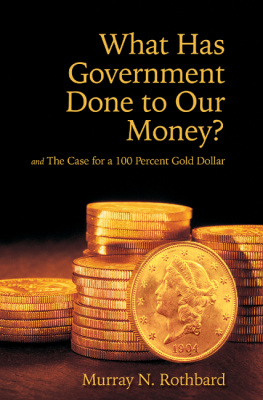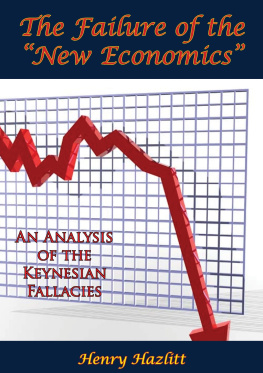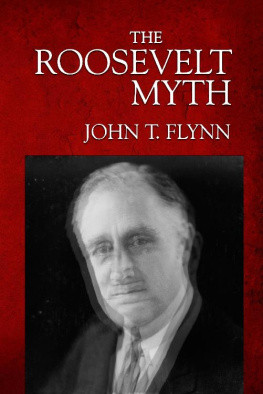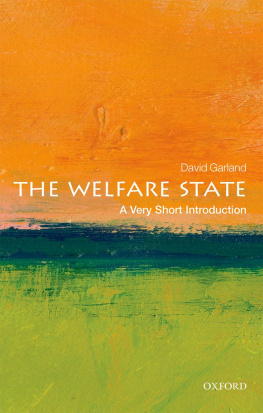
Man vs. The Welfare State

MAN
VS.
THE
WELFARE
STATE

HENRY HAZLITT
ARLINGTON HOUSE NEW ROCHELLE, N.Y.

THIRD PRINTING, JUNE 1970
Copyright 1969 by Arlington House, New Rochelle, New York. All rights reserved. No portion of this book may be reproduced without written permission from the publisher, except by a reviewer who may quote brief passages in connection with a review.
Library of Congress Catalog Card Number 72-93457
SBN 87000-066-7
MANUFACTURED IN THE UNITED STATES OF AMERICA

Preface
THIS BOOK GREW OUT OF A PAMPHLET THAT APPEARED IN August, 1968, called Life and Death of the Welfare State. The greater part of the material in it is new, but several chapters have appeared in advance of this publication in The Freeman (a monthly published by the Foundation for Economic Education at Irvington-on-Hudson, New York), parts of several chapters appeared in my syndicated newspaper column for the Los Angeles Times Syndicate, and Chapter 16 was published as a pamphlet in Europe in English, French, and German editions by INFRA (The International Freedom Academy). I am grateful to the publishers concerned for permission to republish this material here.
HENRY HAZLITT
Wilton, Conn.
August, 1969

Contents

CHAPTER 1
Instant Utopia

IN AMERICA TODAY MOST OF THE OLDER GENERAtionand many of the youngstand appalled at the nihilism of the self-styled Now Generation and its demands for unattainable reforms, or merely for the sheer destruction of whatever is established.
But the cynicism, nihilism, and revolt of youth, and even of some of its parents, are the result of a common cause. In the last generation politicians and governments have been promising the voters that they could not only bring perpetual full employment, prosperity, and economic growth, but solve the age-old problem of poverty overnight. And the end result is not merely that accomplishment has fallen far short of promises, but that the attempt to fulfill the promises has brought an enormous increase in government spending, an enormous increase in the burden of taxes, chronic deficits, chronic inflation, and a constant loss in the buying power of the peoples earnings and savings. Social Security has brought an ominous increase in social insecurity.
Another result of the promise of instant utopia has been a gigantic growth of governmental powerof interference in the details of everybodys business and everybodys life. As this power has increased, it has also become concentrated in fewer and fewer hands. In America the towns and villages have steadily lost power to the States, the States to the Federal Government, and Congress to the President.
One mark of the welfare state everywhere has been the gathering of power into the hands of one man. This is no mere unfortunate coincidence; it has been inevitable. Thirty-six years ago the eminent Swedish economist Gustav Cassel explained in a prophetic lecture how planned economy, long enough continued, must lead to despotism:
The leadership of the State in economic affairs which advocates of Planned Economy want to establish is, as we have seen, necessarily connected with a bewildering mass of government interferences of a steadily cumulative nature. The arbitrariness, the mistakes and the inevitable contradictions of such policy will, as daily experience shows, only strengthen the demand for a more rational coordination of the different measures and, therefore, for unified leadership. For this reason Planned Economy will always develop into Dictatorship.
The succeeding chapters of this book explain in detail the ideology and methods behind the present inflation and aggrandizement of State power, the conditions to which it has led and, finally, the solutions we must apply if this sinister threatnot only to the economic future of the American people but to the future of civilization itselfis to be averted.

CHAPTER 2
Salvation Through Government Spending

IN THE EARLY NINETEEN THIRTIES, IN THE DEPTH OF the Great Depression, the theory became fashionable that the cause of all depressions was Lack of Purchasing Power. The people just did not have enough money, and because of unwarranted pessimism they were refusing to spend enough even of what they had. The solution was therefore simple: at such a time the government should boldly increase its own spending, prime the pump, and get things moving again.
Naive advocates of this theory assumed that more government spending was the whole answer. The more sophisticated advocates saw that the increased spending would not give people more purchasing power if the government kept the budget balanced and took it all away again in higher taxes. The thing to do was to spend more without taxing more. The trick, in other words, was deliberately to unbalance the budgetto run a deficit.
Most of the champions of deficitsincluding the eminent John Maynard Keynes himself, the theorys chief architectat least publicly professed to believe that the required deficit could be financed by selling bonds directly to the public, to be paid for out of savings. But again, the more sophisticated deficiteers must have seen that a man who buys a $1,000 bond out of his savings surrenders that much purchasing power for the life of the bond. In short, he loses just as much buying power as the government gains. On net balance, no new buying power has been created.
How, then, can the government create new purchasing power? It can do so only if it does not increase taxes at all, but sells its bonds to the banking system, and if the banks pay for them by creating deposit credits on their books in favor of the government. This leads to an increase in the money supplythat is, an increase either in the amount of currency or of demand bank deposits.
If the governments new bonds are sold directly to member banks, there tends to be a dollar-for-dollar increase in the money supply compared with the amount of new bonds. But if the governments securities get into the hands of the Federal Reserve Banks, they are used to create what is called high-powered money. This can lead to the creation of about $6 of new money for every dollar of new government securities.
It is not easy to give a satisfactory but short explanation of the reason for this to readers without any previous knowledge of monetary theory. When member banks buy government bonds and pay for them by creating a deposit credit on their books against which the government can draw, they are adding to the nations supply of purchasing media. They are creating money out of government promises, and some would say they are creating money out of thin air.
Next page















